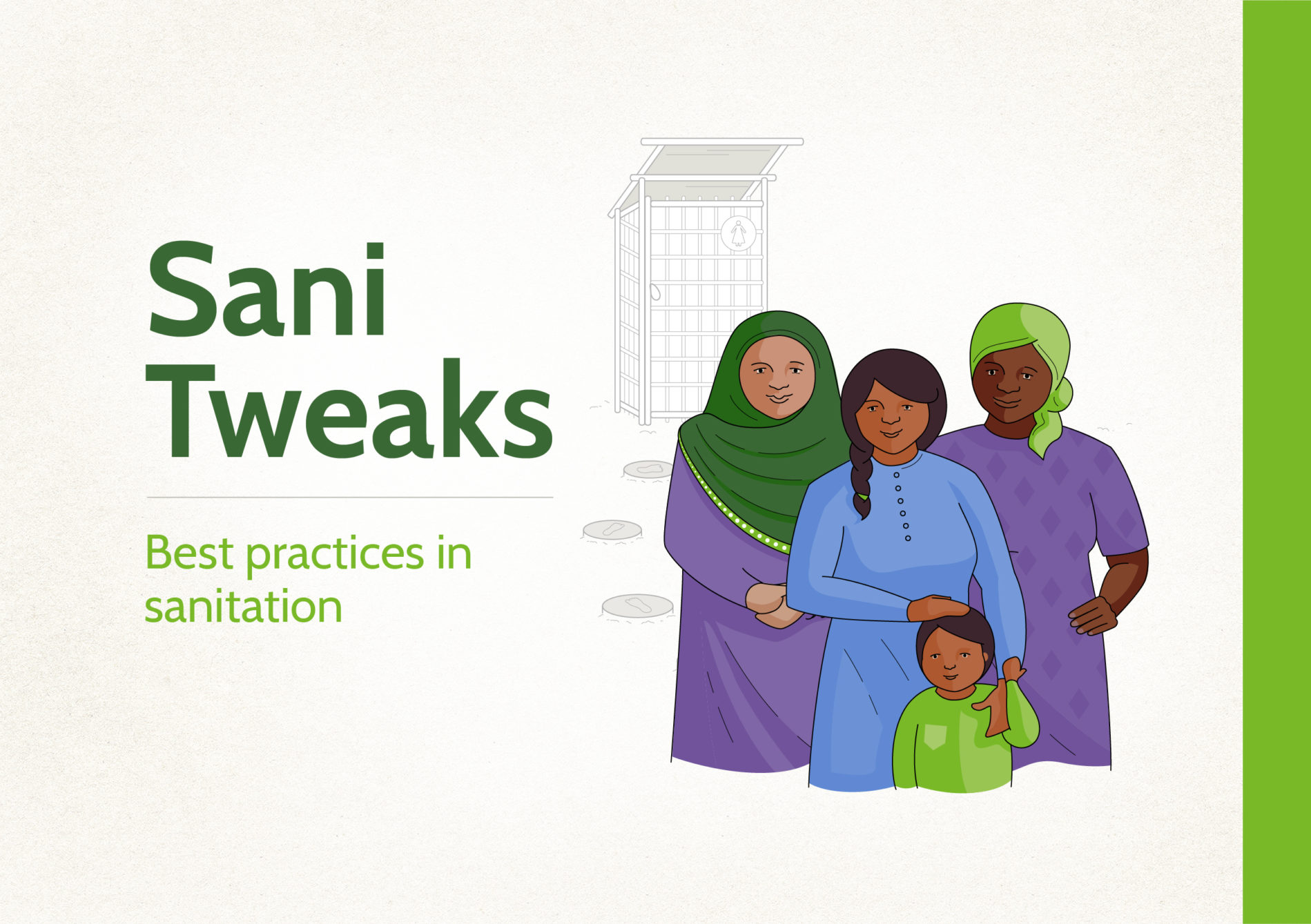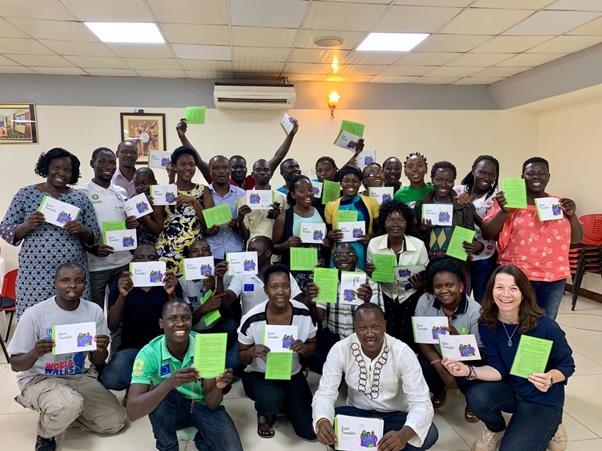Shaping the future: Our strategy for research and innovation in humanitarian response.

Shaping the future: Our strategy for research and innovation in humanitarian response.


In 2019, with the support of funding from The Humanitarian Innovation Fund, Oxfam launched the Sani Tweaks roadshow – a series of interagency workshops aimed at water, sanitation and hygiene (WASH) field staff. These workshops focused on putting field staff in the shoes of displaced people, encouraging them to understand the needs of different users and identify opportunities to adapt latrine designs.
Following a successful pilot event in Mozambique in August 2019, the roadshow moved on to Uganda and Ethiopia in November, building on the learnings from the pilot workshop and running four separate events (both interagency and internal Oxfam workshops) between the two different emergency contexts. Once again, the workshops were well attended, with 64 participants in Uganda and a further 46 in Ethiopia, 90% of which demonstrated a significant increase in awareness, understanding and confidence with the Sani Tweaks approach.

The findings from this initial roadshow have been telling in their consistency. Each of the workshops was preceded by a visit to the field, where focus group discussions with affected communities (women and girls in particular) and observations of the existing latrines took place. Irrespective of context, what we have seen time and again is:
These are common issues that cause an underlying fear of using the emergency latrines that agencies build, thus very much supporting the research that prompted the development of the Sani Tweaks approach and materials.
The onset of the Covid-19 pandemic has put enormous pressure on humanitarian aid worldwide, not least in the context of sanitation which is in danger of becoming a mere afterthought to the essential aspects of public health and hygiene.
However, sanitation remains a critical component to reducing public health-related risks, so it is vital that the conversation around sanitation and the principles embedded in Sani Tweaks continue, irrespective of the wider priorities around social distancing and public health promotion. As we saw repeatedly in African contexts, the anxieties around using camp latrines are very real and undoubtedly now intensified by the fears of a killer global pandemic. This is particularly the case in contexts where treatment and health system capacity remains weak. The Sani Tweaks approach is relevant now more than ever; it is crucial that the momentum built last year not only continues but accelerates into 2020.
To that end, Oxfam is launching ‘IN HER SHOES – The True Story of Emergency Sanitation’. This short film was produced under last year’s funding stream from The HIF and filmed overnight in the Kyaka II Refugee Settlement in Western Uganda.
The film seeks to put its audience directly into the shoes of a female refugee at night, following her frightening journey through the camp as she seeks out a latrine in the dark. Its purpose is to shock and awaken the target audience to the atrocities faced by so many women and girls in emergency contexts today. The aim is to encourage behaviour change and, in line with the objectives of all Sani Tweaks tools, stimulate lasting change in all emergency sanitation programmes worldwide.
Video makes any story human, more digestible and relatable, and therefore more likely to engage an audience and ignite emotions. Crucially, video gives us the power to show, rather than simply tell. You can watch the video below.
Having originally planned for interagency workshops in Bangladesh, the Central African Republic and Burkina Faso, the Sani Tweaks team is now having to think more creatively and, as per all organisations worldwide, explore the ways in which we can bring participatory workshop methods to people’s screens.
The success of the Sani Tweaks roadshow is heavily reliant on the interactivity of workshop participants – no mean feat in digital terms! But where there’s a will, there’s a way – and despite the travel restrictions and challenges posed by Covid-19, improving our sanitation programmes and boosting latrine usage rates remains a top priority.
Top image: front cover of Oxfam’s Sani Tweaks illustrated booklet, part of a suite of resources promoting sanitation best practices.

 Please upgrade your browser
Please upgrade your browser
You are seeing this because you are using a browser that is not supported. The Elrha website is built using modern technology and standards. We recommend upgrading your browser with one of the following to properly view our website:
Windows MacPlease note that this is not an exhaustive list of browsers. We also do not intend to recommend a particular manufacturer's browser over another's; only to suggest upgrading to a browser version that is compliant with current standards to give you the best and most secure browsing experience.